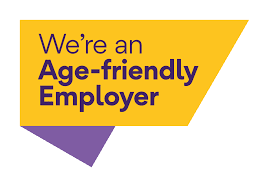Leadership in higher places
Event Report 20th November 2019
Thrive Episode 2
The opportunity to meet the legend that is David Hamilton created a high level of interest. There were so many questions around what pushed him to lead 10 expeditions to Everest, what he learned by doing so and what is he like? He is a man that is confident in his ability to lead and deal with the most challenging of situations. We knew we were in for a great evening.
There was a great buzz in the room as the pre event networking began and we all told David of our efforts to climb Snowdon, Kilimanjaro, 3 peaks challenges and so on. So, it was clear that this crowd were interested, showing great respect and let slip some envy for his life in the Great Outdoors.
David is also a talented photographer, so with a wonderful slide show he began to share the facts and the reflections and the wisdom he has gained from leading these expeditions.
Everest conjures up romantic images of man’s achievement against all odds as well as quite ugly ideas of overcrowding and mass tourism leading to disaster and environmental damage. The press loves drama and he quipped that death by shark or Everest will guarantee readership. However, an interesting fact is that trekking/mountaineering is the most important sector of the Nepalese economy and losing this will lead to hardship for those that rely on this for their living. It may also restrict the challenge to the super rich. Already the cost of an expedition will set you back around £60,000 and above. Food is so important as the body’s ability to maintain body fat is diminished with altitude. David’s expeditions always include good food to lower the risk of dangerous weight loss and the impact of this on a body that needs energy to climb.
This was no ‘who dares wins’ style of presentation – we observed the beauty and the faces of the real people that David led. The biggest change that David has witnessed over 20 years is the changing profile of the climbers. No longer only for the white privileged classes, the most prevalent climbers are Indian followed by Chinese nationals. Their occupations are wide ranging too. David led the first Mexicans to reach the summit.
Knowing your limitations was a key theme, as David told us that on his expedition, he much preferred the people who did not seem to exude confidence to the ones who did: the latter often did not know their own limits leading David to have to restrain their ambitions. We strongly got the impression from David’s speech that self-awareness is essential and not having it will lead to bigger problems.
Perhaps one of the most fascinating moments from the presentation was when David told us about the importance of being aware of cultural differences in difficult situations. For example, when confronted by a risky situation, he would explain these risks to Westerners and let them make their own decision as to whether they were willing to take these risks. However, with an Asian group, his attitude would be very different. Aware of the fear of failure that exists within Asian society, David would not give these groups a choice when confronted with a situation that he deemed risky, conscious of the fact that it is possible that some would rather face death than risk failure. David spoke sincerely about what he learned about people ‘if an American complains about the soup – they get over it quickly – if a Brit complains it is likely to mean a lot more!’
Human nature is tested under these extreme conditions and the camaraderie is super evident at the start and severely tested the closer they get to the summit. He remarked that this could create a dilemma if they ever needed to choose who would receive the remaining oxygen! And how similar this can be to the dynamics in a board room when the going gets tough.
There were many questions about fitness and David suggested that for an average person you will need to prepare for around 12 weeks and challenge yourself by camping in the highlands and cooking outside.
So how dangerous is this compared to Artic expeditions? one of the questions raised. The answer being a lot more as being rescued from Everest is not an option beyond base camps.
We were in awe of this man’s ability to talk about exceptional achievement in the most calm and practical of manners – he described how once you got to ‘The Everest’ to him at least it did not feel that steep!
The applause was loud and the guests keen to network and ask David questions directly.
With any challenge ‘the getting there’ is as important as the achievement itself.
Your mind and body are working hard, you are looking for guidance and expertise, support and leadership.
You are seeking the advice of experts and you are focused.
We are grateful to Malcolm Alexander’s support in making this excellent Thrive event happen.

Contact us
Call us on 07930 356305 or email HQ@russam.co.uk








